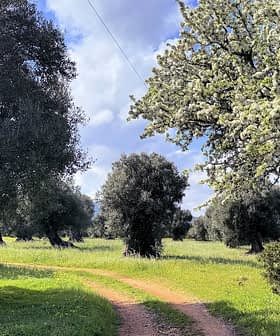
Spanish technology and oil center Citoliva will present what it calls the first software designed to quantify the carbon footprint in the olive oil making process at a technical conference next week.
The conference will take place on March 21st at the Museum of Olive Oil Assets and Sustainability in the Science and Technology Park GEOLIT located in Mengibar, Spain. The release of the new software will coincide with the presentation of the final results of the European project known as OiLCA, or Olive Oil Life Cycle Assessment, an initiative that was developed to improve the competitiveness and reduce the carbon footprint of the olive oil sector by optimizing waste management and implementing an eco-label.
The newly created calculator has been designed to quantify and evaluate the carbon footprint in olive oil making processes and calculates ways to reduce carbon dioxide emissions while still taking into account the costs of these changes.
Decisions are made based on environmental and economic criteria through the novel tool, which is available to companies in the sector for free. The new software will be presented as a helpful option for olive oil businesses to determine their environmental impact, and to identify ways to reduce their gas emissions, an area where olive oil producers are under increasing pressure to improve performance.
Olive oil production is more costly than that of other edible oils, and once the oil is obtained from the fruit it involves even more time and input to produce the final product. Waste and residue is particularly high in olive oil production with the management of stone, pulp and residual oil waste one of the key areas that needs to be targeted when it comes to environmental impact.
Sustainable development and reduction of the carbon footprint in the various stages of olive oil production is an area that needs to be focused on by businesses in the sector, and it is hoped that the development of the new calculator will make excellence in these areas more achievable. This not only offers environmental benefits, but also a possible marketing advantage for companies who are recognized for doing their part to reduce emissions and manage waste effectively.
The software and findings of the OilCa project have been driven by research carried out by Citoliva, but have received input from a wide variety of organizations around Spain and Europe.








